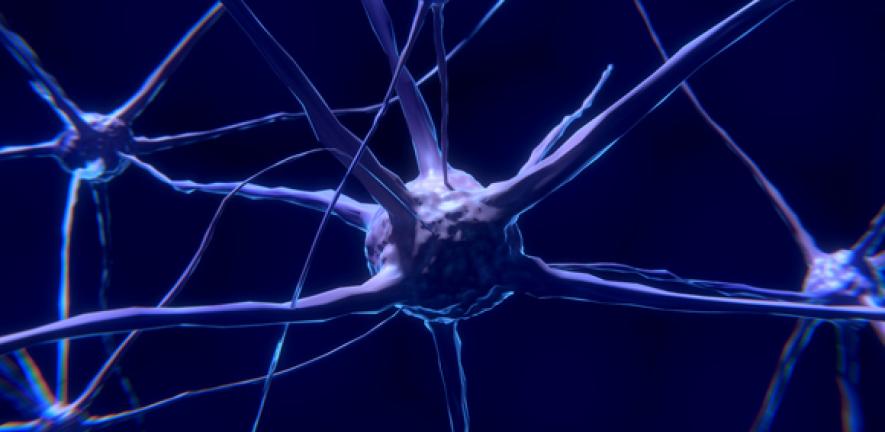- Home
- Editorial
- News
- Practice Guidelines
- Anesthesiology Guidelines
- Cancer Guidelines
- Cardiac Sciences Guidelines
- Critical Care Guidelines
- Dentistry Guidelines
- Dermatology Guidelines
- Diabetes and Endo Guidelines
- Diagnostics Guidelines
- ENT Guidelines
- Featured Practice Guidelines
- Gastroenterology Guidelines
- Geriatrics Guidelines
- Medicine Guidelines
- Nephrology Guidelines
- Neurosciences Guidelines
- Obs and Gynae Guidelines
- Ophthalmology Guidelines
- Orthopaedics Guidelines
- Paediatrics Guidelines
- Psychiatry Guidelines
- Pulmonology Guidelines
- Radiology Guidelines
- Surgery Guidelines
- Urology Guidelines
Statins may prevent onset of serious neurological Disease, finds study

In a genetic study, scientists have found that hyperlipidemia is a causal risk factor and therefore statins could be taken as a protective drug to prevent the onset of an incurable serious neurological disorder called Motor neurons disease including amyotrophic lateral sclerosis ALS. The study appeared in the journal Annals of Neurology.
Dr Alastair Noyce from the Queen Mary University of London said: "This is the largest study to date looking at causal risk factors for motor neuron disease and we saw that higher levels of LDL cholesterol were causally linked with a greater risk of the disease.
"We have well-established drugs that can lower cholesterol and we should look into whether they could protect against this terrible disease, which currently has no cure.
"The next steps will include studying whether lowering levels of cholesterol might have a protective effect against MND, and potentially evaluating the use of cholesterol-modifying drugs in people at risk of MND."
Amyotrophic lateral sclerosis is a disease which causes the death of neurons controlling the voluntary muscles. Studies have found that dysregulation of cholesterol homeostasis in the brain has been linked to many neurodegenerative diseases such as Huntington's disease, Parkinson's disease, Niemann-Pick disease type C, and, most notably, Alzheimer's disease. The generation and clearance of β-amyloid protein (a precursor protein which is linked with the progression of ALS) are regulated by cholesterol, and drugs that inhibit cholesterol synthesis can lower this protein within neurons.
While the datasets did not contain data on individuals' actual cholesterol levels, the team studied genetic markers that are linked to cholesterol levels, and are more likely to suggest a causal link with risk of MND rather than simply associations, which are usually reported from observational studies. A randomized control trial would be the definitive proof to confirm any causal link and the ability of statins to prevent MND.
MND or Amyotrophic lateral sclerosis (ALS) is a fatal neurodegenerative disease for which there is no cure. The condition affects the brain and nerves, with early symptoms including weakness, slurred speech, difficulty swallowing food, muscle cramps, and twitches. Some people also experience changes in their thinking and behaviour.
The condition is more likely to affect people over 50, and most patients succumb to the disease within two to five years of symptom onset. It affects up to 5,000 adults in the UK at any one time, and the global prevalence is projected to nearly double by 2040, primarily due to the ageing of the global population.
In addition to the causal effect of high cholesterol, they also found genetic associations with smoking behaviour and lower levels of educational achievement and an increased risk of ALS. While low levels of exercise were associated with a protective effect, more aggressive exercise was associated with increased risk. However, of these findings, only high cholesterol emerged as a clear modifiable factor that could be targeted to reduce the risk of MND.
Chlesterol lowering drugscholesterolCholesterol lowering drugscholesterol-modifying drugsDegenerativediseasedisorderdrugs that inhibit cholesterol synthesiselevatedHuntington'sLDLLDL cholesterolMNDMotor Neurons DiseaseNeurodegenerative diseasesneurologicalParkinson's diseasepolygenicrandomized control trialsclerosisstatins
Source : Press ReleaseNext Story
NO DATA FOUND

Disclaimer: This site is primarily intended for healthcare professionals. Any content/information on this website does not replace the advice of medical and/or health professionals and should not be construed as medical/diagnostic advice/endorsement or prescription. Use of this site is subject to our terms of use, privacy policy, advertisement policy. © 2020 Minerva Medical Treatment Pvt Ltd